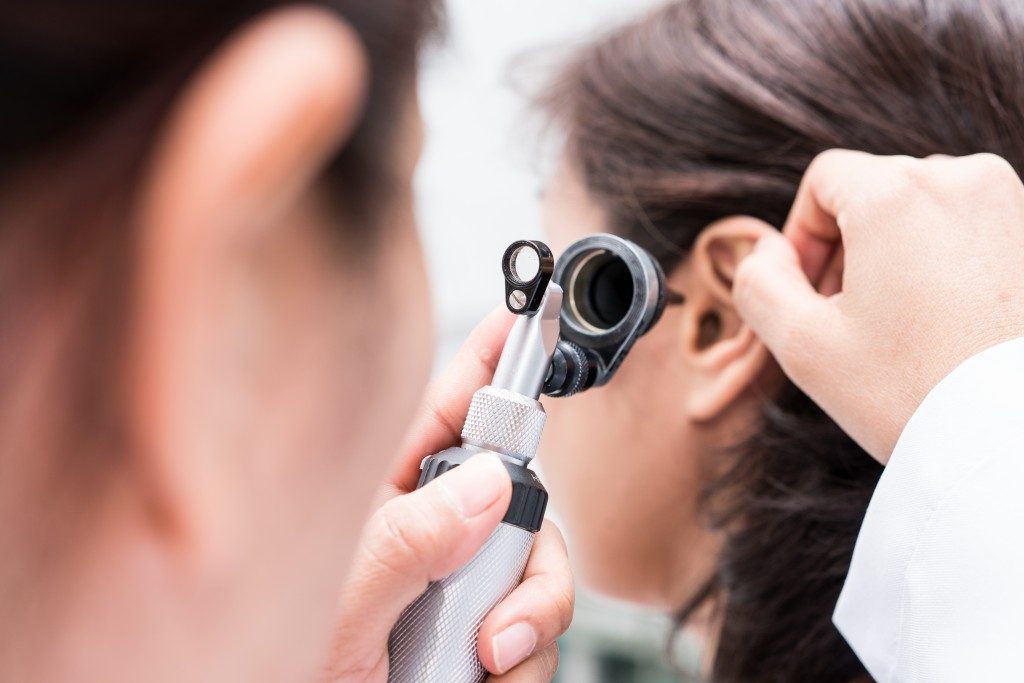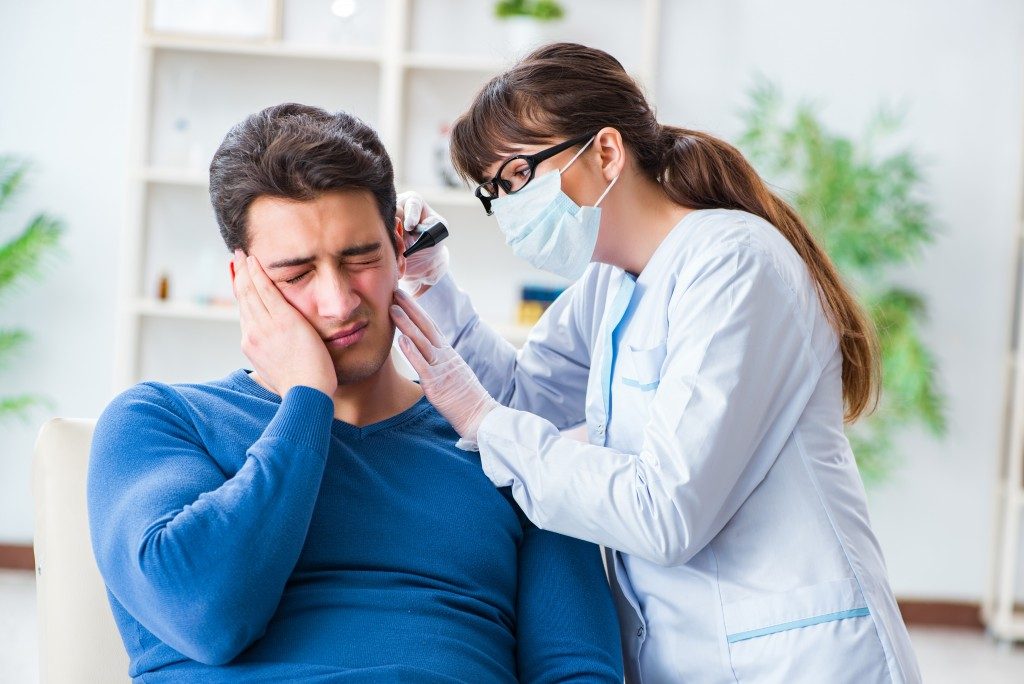Earaches can happen to both children and adults. It can affect one or two ears, with the pain characterized as dull, sharp, or burning that may be constant or come and go. Most cases of ear pain get better on their own without any intervention, but if yours is not clearing up or is accompanied with other acute symptoms, you need to see a doctor or an ENT specialist.
Is it temporary?
In the case of temporary ear pain, it is normal to experience mild hearing loss, which may be due to sudden air pressure changes like traveling via airplane. This rarely results in a persistent hearing problem, and you can try getting relief by yawning or chewing gum. You can also use a pressure filtering earplugs like EarPlanes for temporary relief.
ENT doctors in Denver note that excessive earwax buildup can also cause pressure and temporary ear pain. If you have excessive earwax, be careful not to use cotton swabs or other removal tools when cleaning your ears. Doing so can only push the earwax farther and damage your eardrum. It is better to see a healthcare professional for proper diagnosis and treatment.
Is it a ruptured eardrum?
Also called a perforated eardrum, a ruptured eardrum refers to a small tear or hole in the tympanic membrane (eardrum). Common signs and symptoms include intense pain, clear or bloody fluid from the ear, ringing in the ear, or vertigo (spinning sensation). This may be caused by ear infection, drastic air pressure changes, and injuries or trauma to the ear or side of the head.
Apart from being very painful, a perforated eardrum may also lead to temporary or permanent hearing loss. It can heal within a few weeks without treatment, but it may also require a professional treatment or a surgical repair in some cases. It is best to see an ENT doctor if you experience any signs and symptoms to get proper treatment and preserve your hearing.
What are the other causes of ear pain?
 Other than the things mentioned above, ear pain is also associated with other related conditions like tinnitus or ringing in the ears. There is also the otitis media or middle ear pain, which is the common cause of ear pain. This occurs when a bacteria or virus cause inflammation behind the eardrum.
Other than the things mentioned above, ear pain is also associated with other related conditions like tinnitus or ringing in the ears. There is also the otitis media or middle ear pain, which is the common cause of ear pain. This occurs when a bacteria or virus cause inflammation behind the eardrum.
There are also cases where the pain comes from somewhere else in the body but is then felt in the ear. This can include TMD (temporomandibular joint disorder), toothache, sinusitis, and severe sore throat (tonsillitis or pharyngitis). In some cases, cavities, tooth abscesses, and impacted molars can also cause ear pain.
How can I prevent earaches?
This is all about treating your ears right. These include:
- Avoiding loud music (or wearing earplugs or noise-cancelling headphones when you can’t avoid the noises)
- Turning the volume down of your TV or mp3 player
- Giving your ears a break
- Stopping the use of Q-tips when cleaning ears
- Avoiding allergy triggers like dust, pollen, and secondhand smoke
- Keeping any foreign object out of your ear
- Keeping ear dry or drying them after bathing or swimming
If your earache or pain is severe and does not clear up within a few days, see an ENT doctor. This is to determine the right treatment and rule out any other serious condition.

